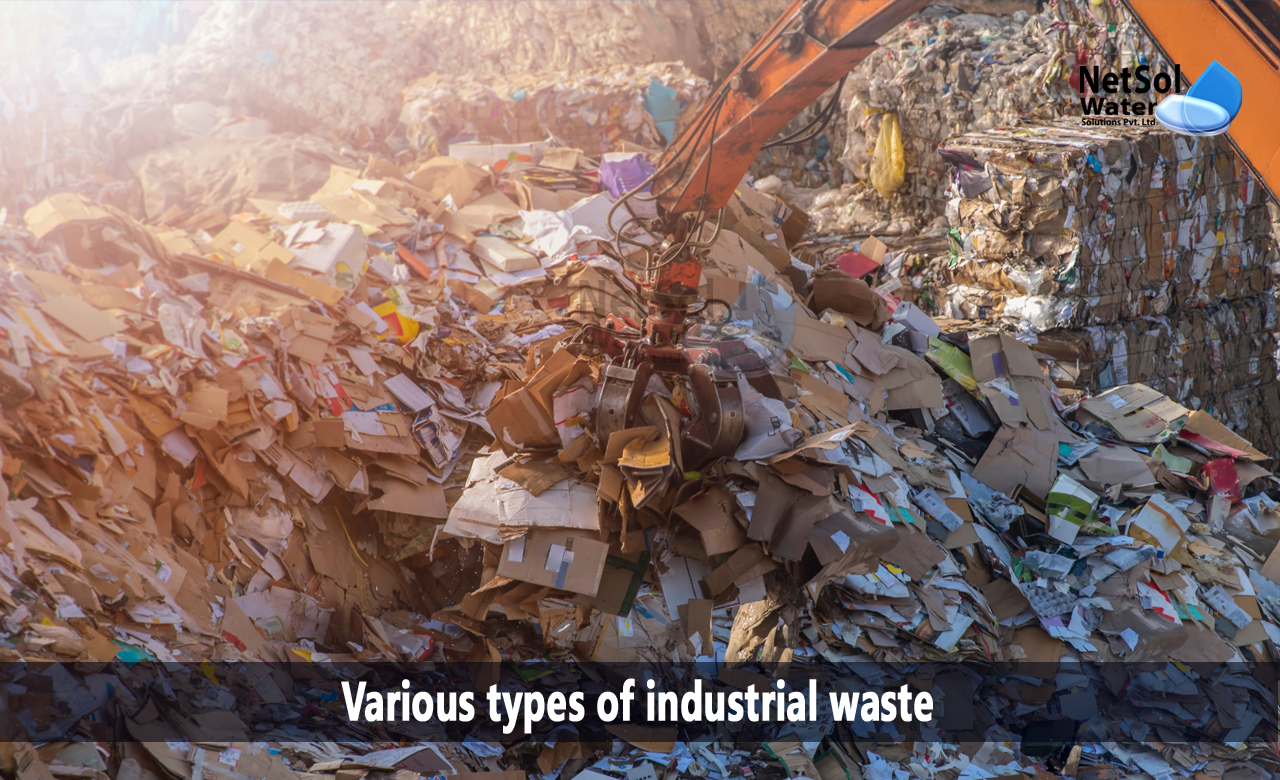Industrialization brought with it a plethora of new industries such as mining, milling, and manufacturing, and global market developments continue to have an impact on industrial marketing plans.
Each manufacturing and production unit requires raw materials, in order to make or manufacture their end product, and current industrial activities generate a substantial quantity of waste, which includes waste paint, metal, ash, slag, and even radioactive waste.
Industrial Waste
It refers to any liquid, solid, or gaseous residual matter resulting from industrial activities, and regardless of whether the waste is categorized as household or industrial, any type of waste can pose a health risk to employees, if suitable disposal plans are not in place.
Because, a wide range of wastes can technically be classified as industrial waste, it's critical that you identify the various types of raw materials your company uses, as this can help you determine what type of waste they generate, and whether such materials and their by-products can be reused or recycled.
How many types of industrial waste?
The following are some categories of industrial waste:
· Liquid Waste
Liquid waste is generated both at home and in the workplace. Most industrial operations require large amounts of water, which may come into touch with hazardous chemicals such as radioactive materials, unclean water, organic liquids, rinse water, waste detergents, and even rainwater.
Industrial liquid waste that spills into seas, rivers, or lakes causes a multitude of environmental problems, due to the high concentration of pollutants. Businesses and manufacturers are obligated to establish wastewater treatment facilities, to prevent dirty water from spilling into big bodies of water, because untreated water can harm the surrounding environment and, in extreme situations, the surrounding population.
· Industrial Solid Waste
Paper, plastic, wood, cardboard, packaging materials, scrap metal, and any other solid waste that can no longer serve its intended purpose, are examples of industrial solid waste. However, what is deemed garbage in one business might be utilized as raw materials in another, and some industrial waste is recycled for reuse at recycling plants.
You can considerably minimize waste clearing costs by recycling as much industrial waste as feasible, and having adequate garbage disposal strategies in place helps ensure your waste management, and waste treatment solutions are as eco-friendly and profitable as possible.
· Chemical Waste
Most industrial activities generate some quantity of chemical waste, which includes all sorts of flammable, corrosive, poisonous, and explosive waste. Chemical waste disposal should be managed by experts, since it often contains toxic chemical residue that is damaging to human, animal, and plant life.
With growing environmental concerns, industries and businesses all over the world are now required to follow industrial waste disposal, and waste treatment management guidelines and standards, such as those published by the Environmental Protection Agency and the Occupational Safety and Health Administration, and such waste should be handled by specialists.
· Industrial Toxic Waste
The majority of chemical waste generated by industries, such as laboratories, hospitals, chemical factories, is poisonous and harmful. Toxic waste, if not properly treated or disposed of, can pose major health and environmental dangers, which is why guidelines require it to be handled only by government-approved and specialized facilities.
Conclusion
Finally, regardless of the type of industrial waste, it is critical that every company, manufacturing unit, plant, and factory follow stated industry and government waste and wastewater disposal rules.
Manufacturer of water and wastewater treatment plants
Netsol Water provides a wide range of modern treatment solutions, including ETPs, STPs, WTPs, water softener, membrane technologies such as RO Plants, etc., with their design, installation, and after services.



